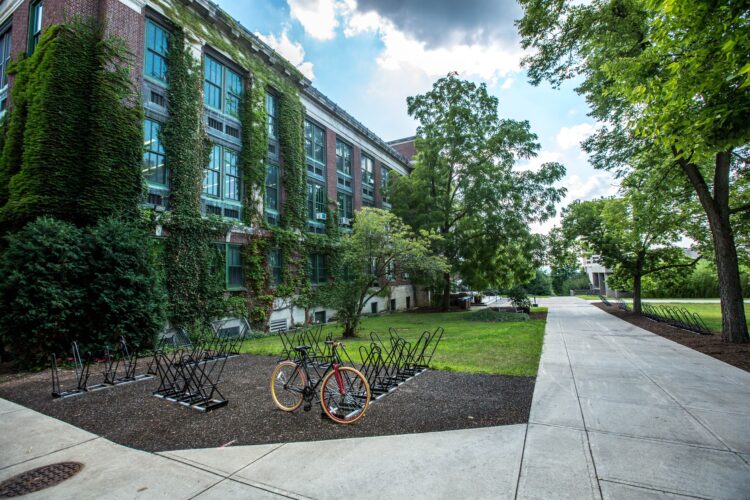Getting a good education is expensive, to say the least. Long before the COVID-19 pandemic, expenditures had entered unknown territory. But throwing the health crisis into the equation is now presenting a great many problems that could lead this trend in an erratic direction. Many youngsters are considering leaving to study abroad, where they get better value for their money and have better chances of finding employment after graduation. Thankfully, there’s been an expansion in financial aid programs with enrollment. Some argue this isn’t enough, as budgets should be increased for faculty pay and on-campus student services.
When It Comes to Higher Education Institutions, The Pandemic Will Continue to Have a Drastic Financial Impact

There are several reasons why university education is more expensive. Examples include but aren’t limited to a surge in demand, increased financial aid eligibility, a lack of state funding, and universities needing more money for teaching. According to the experts, the coronavirus pandemic will continue to impact higher education institutions significantly. A select few universities have large endowments to assist them in navigating through difficult times, yet the majority don’t. Multiple vaccines have hit the market, turning the tide of the health crisis and bringing hope that we might enter a new normal very soon. Nonetheless, the road to recovery will be long and tedious.
Simply put, the economic effects will be felt by small schools, which face substantial losses in revenue. It shouldn’t come as a surprise if tuition fees increase to compensate for these losses. As far as students are concerned, they’re convinced universities handled the pandemic well, but they’re no longer sure that higher education is worth the cost, especially when it’s done online. There has been a downward shift in trust in institutional leadership. Youngsters are worried that teaching quality in online education degrades, meaning that the degree becomes less valuable. Online education might cost less, yet it still might seem expensive to some.
Paid Employment Can Provide Students with The Money They Need to Stay Enrolled

Online classes offer students much-needed flexibility to juggle careers and schools because they’re not tied to a fixed schedule. A source of income is great when you have rent, bills, and course books to buy. Paid employment builds human capital and enhances labor-market outcomes. A significant percentage of university students in the United Kingdom work in the escort industry, although they rank among the academic elite. The most frequent motivation of students in London working as escorts is to fund a particular lifestyle. Flexible working hours also represented an important factor. Escorting shouldn’t be confused with prostitution, just to be clear. It’s a broad occupation that implies accompanying another person. For more information check www.peachyescorts.co.uk.
Escorting is just like a bar job for students, so it shouldn’t be an issue. An escort is someone who is paid to spend time with another person. They might accompany their client to dinner, an entertainment venue, a business affair, and so forth. More and more students are working while attending school. Maintaining employment during the demanding years is no easy thing, but at least students don’t have to search far and wide for a decent wage. Apart from what was mentioned before, other positions that offer support for youngsters and help them keep afloat throughout graduation day include nanny, call center representative, virtual assistant, pet sitter, food service worker, and home health aide.
Working a part-time job during university can help pay for tuition fees and personal expenses. Working while enrolled doesn’t necessarily impact academic outcomes. The truth is that individuals can combine work and school with minimal impact if working hours are modest and they have a stronger orientation towards studying. The decision of whether or not to take up paid work is a dilemma that students from all around the world face. The additional income advantages must be compared against the loss of hours dedicated to formal study. At times, labor market regulations favor adults and tend to disadvantage the youth.
Everyone Wants to Go to University

It’s no secret that going to university opens up doors to better careers, especially in terms of salary. It’s practically a ticket out of poverty. It’s possible to believe otherwise because no credible sources guarantee that education is a good investment. Putting aside the monetary value of a university degree, university graduates earn considerably more than those who just finished high school. More precisely, going to university is worth it. Jobs and careers now require a university education, so it’s necessary to have at least to have a bachelor’s diploma. Many degrees have a high ROI, such as architectural engineering, dental support services, and construction management.
The COVID-19 pandemic has determined many young adults to delay or reconsider university altogether, primarily due to financial concerns. It’s recommended that students don’t pick a major due to its potential salary. The reason for this is that there’s no way of knowing for sure what professions will pay best in the years to come. It would be better to find a vocation that you’re passionate about and apply to educational institutions that have well-respected programs in the field. Education should combine both practical skills and theoretical expertise. A vocational qualification can offer a sound foundation for further study, not to mention preparation for a future career.
While The Sticker Price of a Degree Might Seem Exceptionally High, Most Students Don’t End Up Paying That Much
The bottom line is that life is much more expensive now as compared to a couple of years ago. Due to inflation, we’re spending more on everything, including education. At present, the cost of earning a good education can easily rival that of purchasing a home. However, it’s never as bad as it seems. Prospective students can mitigate the costs by talking to their parents ahead of time. Even if you attend one of the most expensive universities ever, you won’t necessarily end up paying an exorbitantly high amount. Taking on a part-time job or searching for scholarships is worthwhile.
 Hi Boox Popular Magazine 2024
Hi Boox Popular Magazine 2024



